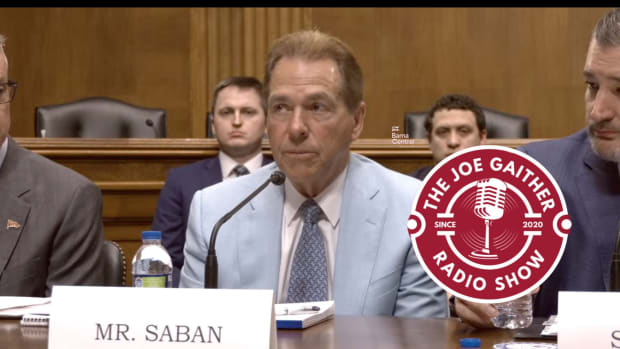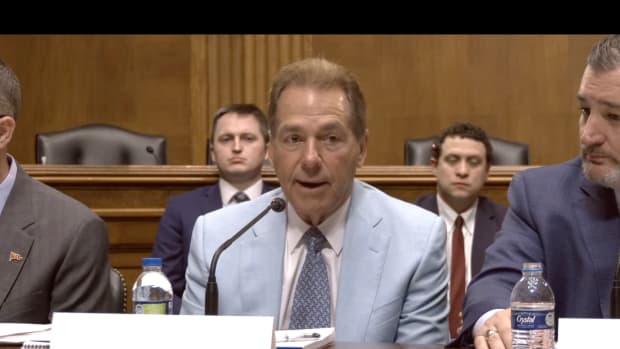Alabama Guard Jahvon Quinerly Denied Appeal to Play This Season by NCAA
University of Alabama men’s basketball guard Jahvon Quinerly was denied his appeal from the NCAA Committee for Legislative Relief on Monday.
Alabama’s athletic director Greg Byrne and men’s basketball head coach Nate Oats made a joint statement regarding the NCAA’s decision:
“We can’t begin to express how disappointed we are with this decision. Jahvon and his family have been through a set of circumstances that no student-athlete in the history of the NCAA has experienced.
"Their name has been falsely dragged through the mud for two years, and we felt confident that the NCAA Committee for Legislative Relief would recognize this very unique set of circumstances.
"We will continue to support Jahvon and his family in every way that we can.”
Despite not being eligible to play, Quinerly has practiced with the team since arriving in Tuscaloosa. The 6-1, 175-pound backcourt player was a McDonald's All-American and rated as a five-star prospect as a recruit.
Oats spoke with the media after the Crimson Tide’s 78-59 victory over FAU on Monday night and talked a lot about the NCAA’s decision.
“It is what it is,” Oats said. “I mean, it’s one of those deals where it doesn’t fit — you know these — trying to make everything so black and white with the NCAA sometimes it doesn’t fit a box. Like, there’s never been an NCAA — an FBI investigation with NCAA men’s basketball — like I think if anybody knew what Jahvon and his family went through, we just felt like if you knew the whole story that any reasonable person would’ve wanted him and his family for him to be able to play.”
After Oats found out the decision, he immediately called a team meeting to inform the players of the NCAA’s decision.
“I told them ‘Let’s control what we can control, we can’t control the NCAA’s decisions,’” Oats said. “‘We can control how hard we play. We can control our reactions to it. Let’s react the right way. Let’s come out and play hard.’”
After sitting out the 2019-20 season, Quinerly will be allowed to practice and still have three years of eligibility remaining.





